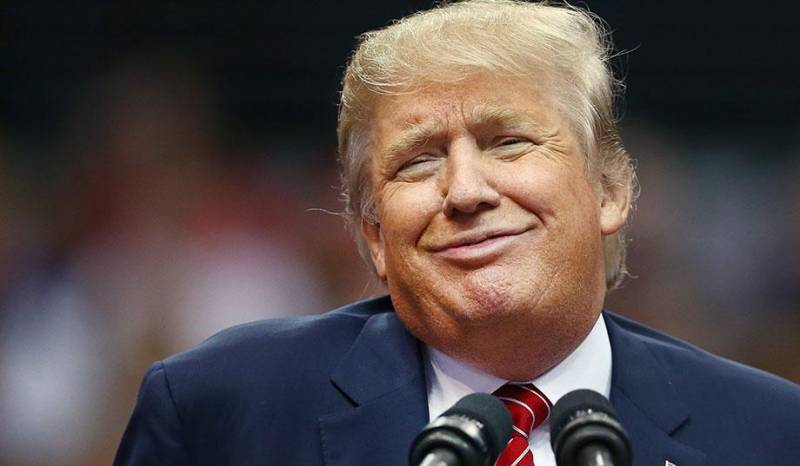Donald Trump won the American presidential election by promising to “Make America Great Again”. But what did he mean by ‘great’, and when, in the past, was America great, since the slogan says that it shall be ‘great again’. America is in many respects one of the greatest countries on earth, alas with huge disparities, wasteful use of resources and other shortcomings.
A businessman-turned-politician like Donald Trump focuses on jobs, trade and the economy. That is understandable and important. But it is difficult to talk only about economic prosperity since America has never been wealthier than it is today, and the economy is doing quite well.
In a recent article in New York Times (The Upshot, 12.01.17), Yale economics professor Robert J Shiller, refers to data from the Federal Reserve Board, and works by the French super-economist Thomas Piketty and others; he says that the per capita household net worth has never been higher in the USA. At the same time, distribution of wealth has changed and inequality has widened significantly in recent decades. The richest at the top have become very much richer while the lower half of the people have only marginally increased their income, not to speak of the impoverished ones trapped at the bottom of the ladder. Would it not be a basis of any great society to care for the last, the least and the lowest?
It goes without saying that if Trump really wants America to become great again, distribution of income and opportunities would be at the top of the list. But that doesn’t seem to be the case as judged by his statements and the fact that the cabinet is composed mostly of millionaires and billionaires who would have scant knowledge of the needs of ordinary working people.
Anthony Barnes Atkinson, a British scholar who passed away recently, worked for four decades on equality and poverty issues, including the question of a basic ‘employment guarantee’ or ‘citizen’s income’ for all. The Norwegian Green Party has just proposed introduction of pilot projects to try out the idea. The European welfare states have many of the aspects in question, but fall short of making it universal in all its facets.
American thinking is different, where private charity still plays a key role, and people who are poor and cannot look after themselves are mainly blamed for their condition themselves – which is illogical, just taking into consideration factors such as class, race, ethnicity, migration, refugee aspects, IQ, mental and physical ability, education, geography, and more. In Europe, too, there is a growing number of people who think that everyone creates his or her own success or failure. But to receive social services and help when needed is a right; we should receive it with heads high, not with cap in hand.
As for the society collectively assisting those who need help, Pakistan has mainly a family system that gives everyone some guarantee for help. The problem is that poor people have limited ability to help other poor people, and rich people are not helping poor people as much as the needs are, even if Islam and other religions say we should help people in need. Pakistan also has some government facilities helping groups of needy people, and a fairer tax system and provision of public government services are frequently discussed, indeed in as regards the health and education sectors. The military sector has good welfare systems for their segment of the population. In Pakistan, as in America and Europe, economic differences between people keep growing although resources are more than ever.
I believe that in order to make America and the world great again, we need to re-invent the public sector – and also the private sector. Internationally, trade should eventually become much less because people can make most things where they live, not send them to the other end of the globe. Trump wants trade but he also wants more things to be manufactured at home in USA.
The public sector will always remain important, although we often keep disliking regulations and taxation, and many think that the private sector is more efficient. Most people agree that state security and justice systems are essential, even the military. In future, there are enormous challenges in those basic fields of the state; we need new ideas that are good for all, not just status-quo for the winners of WWII and the Cold War, and those who had the long end of the stick during and at the end of the Colonial Area.
Donald Trump says that all the 28 NATO member countries should contribute more (each at least two percent of their GDP), and America a lower percentage than its some two-thirds it contributes today. It is short-sighted and short-circuited thinking. We need to learn to think entirely differently about defence, security, geo-politics, economic and social politics. For starters, the West could begin to think about how Russia and OSIS states could be friendly partners of the West, and expand it further. How can the rest of the world, indeed the poor countries, whose majority populations are poor, become part of a more equal and fairer world, where there would be population flows in many directions, not forced and other migration? How can we become better stewards of God’s garden, and everyone and everything in it, in accordance with the commandments in all the holy books?
If America and the rest of us, especially the West, can do something of this, no, all of this, as a foundation for the future, then America and the world could indeed become great again, more inclusive for all men and women. To become a kinder, fairer and more honest to each other.
Welcome, to a new and changing world! Hopefully, great men and women, at the World Economic Forum in Davos this week, will give us a few points. Yet, most of the thinking you and I will have to do, together with democratic experts everywhere.






